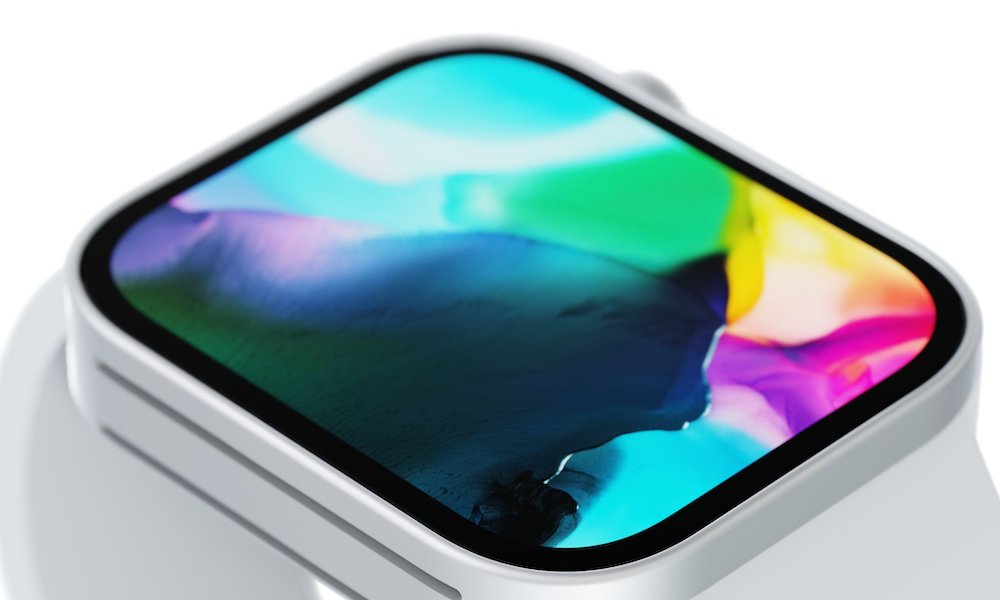Body Temperature Sensor Reportedly ‘Is a Go’ for the New Apple Watch Series 8
 Credit: @LD_Vova / Twitter
Credit: @LD_Vova / Twitter
Toggle Dark Mode
If the latest reports are accurate, this year’s Apple Watch is slated to receive at least one significant health sensor update after all.
It was a little over a year ago that we first heard reports of Apple’s plans to include a body temperature sensor in the Apple Watch. Bloomberg’s Mark Gurman first broke the news, revealing that Apple had been aiming for the Apple Watch Series 7 to gain the new sensor, although it was unlikely to make the cut.
Of course, we know that didn’t happen. Like the similarly odd-numbered Apple Watch Series 5, last year’s Series 7 didn’t get any new health improvements. Instead, Apple’s focus was on the display, which also paralleled the most significant change that came to the Apple Watch Series 5. The 2019 model gained an always-on display; the 2021 version got a larger, more durable screen.
Whether this is Apple’s intention, it’s beginning to seem like new health sensors will only come in even-numbered Apple Watch models. The Apple Watch Series 4 famously introduced the ECG app and irregular heart rhythm detection, the Series 6 added a blood oxygen sensor, and now the Series 8 will bring body temperature to the mix.
How the Body Temperature Sensor Would Work
However, sources have been somewhat divided on precisely what form this will take or how it will be used. According to our sources, Apple has abandoned its more ambitious plans to try and read an exact body temperature; it’s seemingly impossible to do this from the wrist with current technology.
Instead, Apple is going for a more general approach where the new sensor would only be able to alert the wearer to an abnormal body temperature without offering a specific reading.
Without the ability to offer precise measurements, some reports suggested that Apple would limit the new sensor to fertility planning applications. This notion initially came from a Wall Street Journal report last fall, and Gurman confirmed that in an April Bloomberg article.
If true, that would have been something of a disappointment to the vast majority of Apple Watch users. I don’t want to minimize how incredible this could be for couples trying to conceive a child — I’ve been there myself — but it’s still fair to say that the people who would need this feature would represent a small fraction of Apple’s customer base.
Fortunately, Gurman now suggests that the body temperature sensor will be available for more general purposes, such as letting you know if you may have a fever. In his latest Power On newsletter, Gurman notes that it won’t provide specific readings. Still, it could give enough feedback to suggest visiting a doctor or taking a more accurate temperature reading.
The body-temperature feature won’t give you a specific reading—like with a forehead or wrist thermometer—but it should be able to tell if it believes you have a fever. It could then recommend talking to your doctor or using a dedicated thermometer.Mark Gurman
This would follow the same principle as Apple’s ECG and heart rate monitoring features, which aren’t intended to provide medical-grade readings; they’re there to let you know that something unusual is happening and you should get it checked out by a doctor.
Gurman also reveals that he now believes from his sources that the feature “is a go” and will be included on both the Apple Watch Series 8 and the new rugged “Explorer Edition” that’s also expected to be released this year. It’s unlikely to appear on the next-generation Apple Watch SE, which isn’t a surprise since the entry-level model focuses more on fitness than health monitoring.
To be clear, the body temperature sensor isn’t entirely a sure thing. Gurman concedes that it still has to “pass muster during internal testing,” echoing earlier comments from Ming-Chi Kuo that Apple has been struggling to get its algorithms right.
Kuo cites algorithmic problems as the reason body temperature measurement didn’t make it to last year’s Series 7. However, our sources suggest that’s simply because Apple’s goals were too ambitious in trying to get specific temperature readings. Scaling that back to algorithms that provide only a more general temperature range should be much more achievable, which means there’s a much higher probability that things will work out this year.
[The information provided in this article has NOT been confirmed by Apple and may be speculation. Provided details may not be factual. Take all rumors, tech or otherwise, with a grain of salt.]







